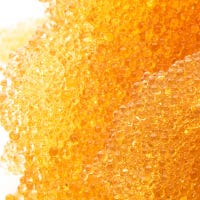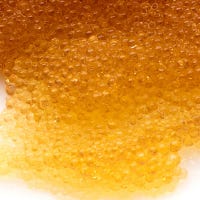Ion Exchange
Ion exchange (IX) is the reversible interchange of ions between a solid polymer and a liquid such as water. Ion exchange resins remove undesirable constituents from liquids and replace them with a counter ion. There are also instances of resin types that use an adsorption mechanism to remove constituents rather than ion exchange.
Adsorbent


Adsorbent resins are used for removing organic compounds in many industries, such as bioprocessing and wastewater treatment.


Anion resins are characterized by their ability to remove anionic species or acids commonly present during a water demineralization process. Types include strong base anions (type I and II) and weak base anions.


Cation resins are characterized by their ability to remove bases, or low pH ions, commonly present during a water demineralization process. Resin types include strong acid cations for splitting salts and weak acid cations which have a high affinity for hydrogen ions.
Anion


Chelating resins are specialized resins typically used in the hydrometallurgical industry. They are capable of selective exchange of various heavy metals from alkaline earth to alkali metal solutions.


Inert resins are non-functionalized resins used as an upper layer or between mixed bed resins in packed bed, counter-current / Air hold-down and mixed bed IX systems. Inert resins are designed to to function as a protective layer or create a neutral zone to collect regenerants.
Cation


Mixture of cation and anion ion exchange resins for demineralization or softening applications.
Chelating
Inert
Mixed Bed
Adsorbent


Adsorbent resins are used for removing organic compounds in many industries, such as bioprocessing and wastewater treatment.
Anion


Anion resins are characterized by their ability to remove anionic species or acids commonly present during a water demineralization process. Types include strong base anions (type I and II) and weak base anions.
Cation


Cation resins are characterized by their ability to remove bases, or low pH ions, commonly present during a water demineralization process. Resin types include strong acid cations for splitting salts and weak acid cations which have a high affinity for hydrogen ions.
Chelating


Chelating resins are specialized resins typically used in the hydrometallurgical industry. They are capable of selective exchange of various heavy metals from alkaline earth to alkali metal solutions.
Inert


Inert resins are non-functionalized resins used as an upper layer or between mixed bed resins in packed bed, counter-current / Air hold-down and mixed bed IX systems. Inert resins are designed to to function as a protective layer or create a neutral zone to collect regenerants.
Mixed Bed


Mixture of cation and anion ion exchange resins for demineralization or softening applications.
